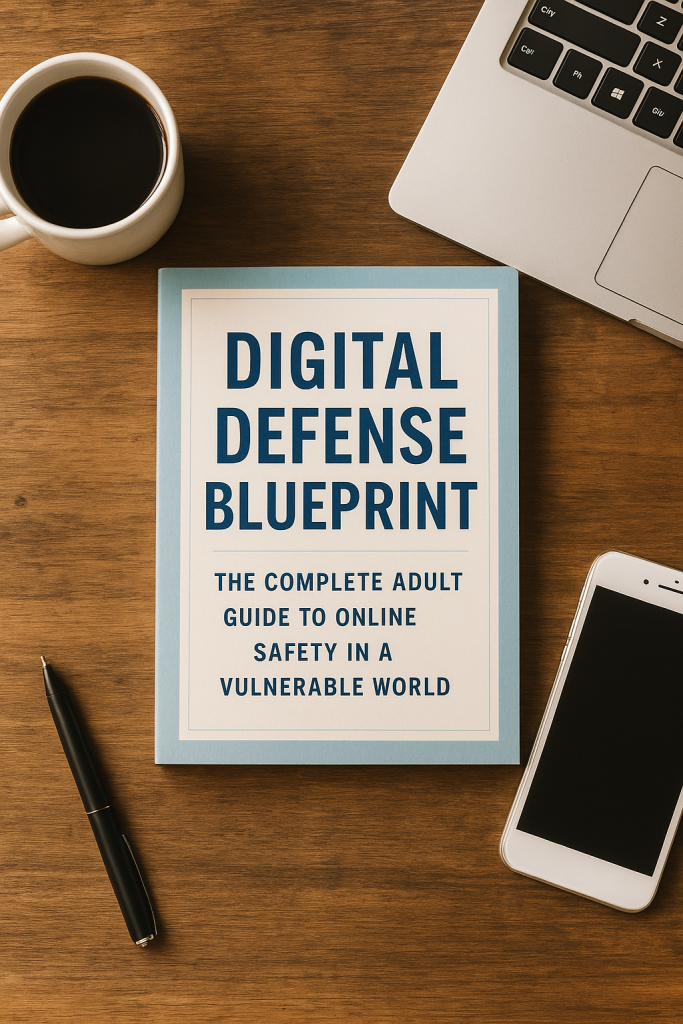In today’s hyper-connected era, the internet is not just a tool; it is an extension of our lives. We shop online, work online, learn online, build businesses online, and connect with loved ones all through screens and networks. But with this convenience comes unprecedented risk. Every click carries potential danger, every link could open a trap, and every shared detail could compromise your privacy, finances, identity, and reputation.
This is not fear-mongering. It is reality. Cybercrime is rising globally at an alarming rate. Scammers, hackers, identity thieves, fake investment platforms, data-leaking apps, and social engineering schemes are targeting adults daily regardless of age, profession, or geography. Staying safe online is no longer optional. It is survival.
If you do not master digital safety, you risk losing not just money but trust, credibility, peace, and control over your life.
Why Online Safety Matters More Than Ever
Every year, millions of adults fall into cyber traps. Some lose life savings. Some unknowingly share sensitive business plans. Some become victims of blackmail or identity theft. Some see their reputations destroyed through misinformation or leaked private content.
Cybercriminals don’t care about your background, wealth, education, or profession. They only care about one thing access.
And the truth is, adults are often targeted more aggressively than children because:
Adults have financial assets.
Adults handle business and banking data.
Adults control household information and family networks.
Adults often trust too easily online.
Your digital safety is your frontline defense. And the time to strengthen it is now before damage happens.
Key Principles to Stay Safe Online
1. Protect Your Personal Information
Never share your address, phone number, banking details, passwords, or private documents unless absolutely necessary and through secure, verified platforms.
Cybercriminals prey on oversharing. Privacy is power.
2. Use Strong, Unique Passwords
Reuse is dangerous. Create long, unique passwords for every account and store them in a secure password manager. Enable two-factor authentication wherever possible.
3. Beware of Suspicious Links and Messages
Fake emails, investment offers, romance scams, delivery notifications, and job proposals are common traps. If it sounds too urgent, too personal, or too good to be true, stop and verify first.
4. Secure Your Devices
Update systems, antivirus software, and apps regularly. Your phone and laptop are gateways to your identity — treat them like valuables.
5. Verify Before Trusting
Do not believe every person, every ad, every news post, or every online opportunity. Scammers use professional-looking pages, fake profiles, and deepfake videos to manipulate trust.
Truth online requires verification, not assumptions.
6. Control What You Post
Once posted, always at risk. Your pictures, opinions, and personal updates can be copied, altered, and misused. Share thoughtfully. Guard your digital footprint.
7. Educate Yourself Continuously
Cybercriminals evolve daily. Your knowledge must evolve too. Stay updated, stay aware, stay prepared.
Act Now Your Digital Safety Cannot Wait
Cybersecurity is not a luxury. It is a responsibility to yourself, your family, your finances, your business, and your future.
You do not leave your house unlocked.
You do not give strangers your bank ATM card.
So do not leave your digital life unprotected.
Start building your online safety habits today.
Start questioning before trusting.
Start securing your information before someone else takes it.
Your safety is your strength.
Your awareness is your shield.
Your digital life is worth protecting fiercely and urgently.

